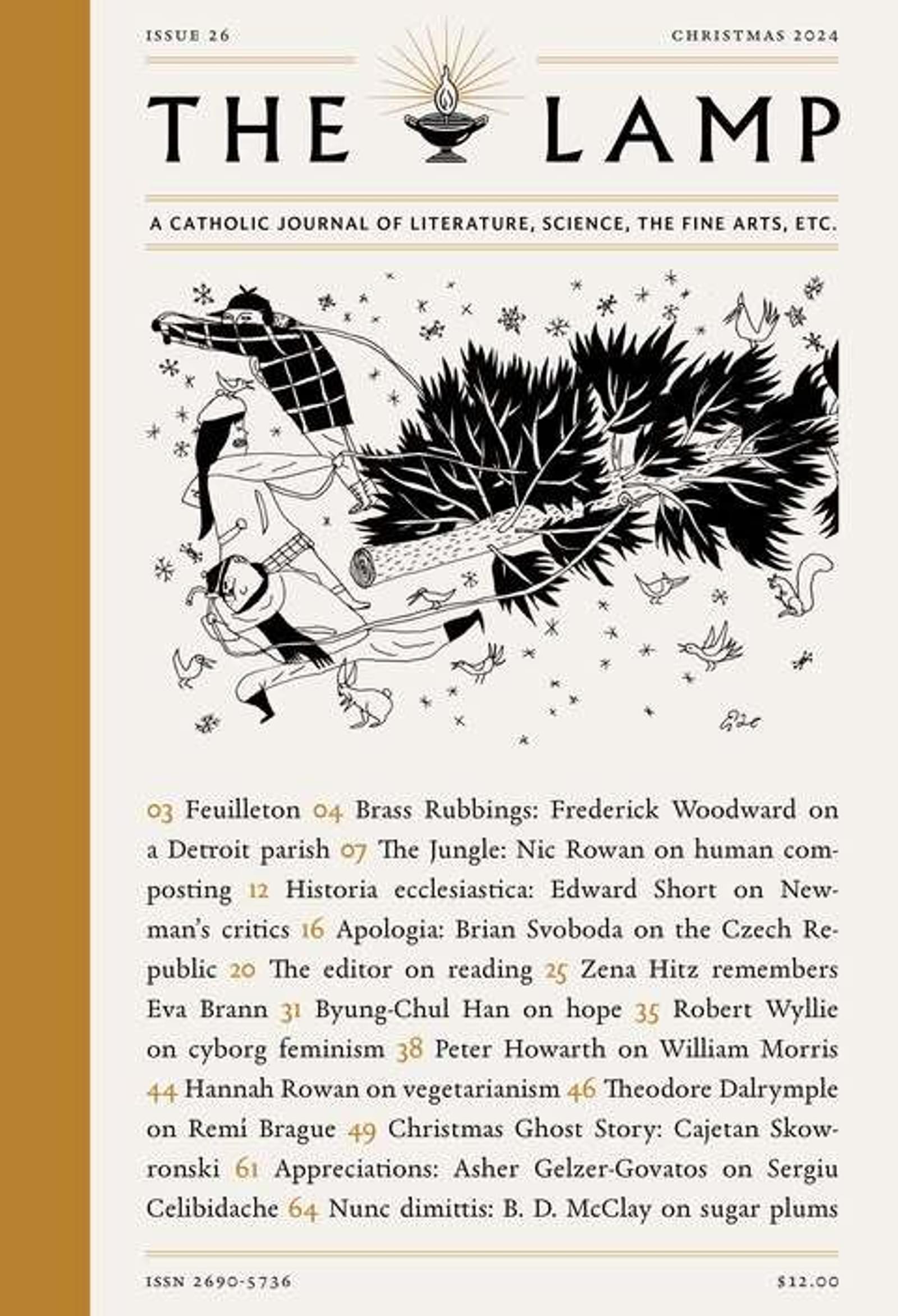One of the first McDonald’s Happy Meal toy collections I can remember was inspired by the then-new movie Inspector Gadget. Each meal came with an arm, leg, torso, or head piece of the robo-detective, and I managed to collect them all (mostly by trading). The completed toy sat on my childhood dresser for years. It may still be in a box somewhere at my parents’ house. (For B. D. McClay on childhood memories, see page 64.)
Inspector Gadget was also my first exposure to the genre and ideas of techno-humanity: cyborgs, Robocop, the Terminator, Doctor Octopus, and so on. (Robert Wyllie examines cyborg feminism on page 35.) The backstories are various, but are commonly of two sorts: a tragic accident causes doctors to save the patient by replacing his failing biological systems with cyborg ones, or an evil mastermind searches for greater power or immortality by performing technological modifications to his own body. (For Nic Rowan on postmortem bodily modifications, see page 7.)
These are the flip-side, sci-fi versions of typical fantasy superheroes and supervillains, wizards and warlocks. The second half of the twentieth century saw the introduction of space flight, the nuclear arms race, and the Internet—technical advances that captivated people and changed how they perceived the world. (For Matthew Walther on a much older life-changing practice—reading—see page 20.) The starting point for these stories is always dissatisfaction with the weakness of the human condition. (For Byung-Chul Han on dissatisfaction, see page 31.) Where we perceive our own weakness, we can imagine a science-fiction enhancement, and the story proceeds.
This genre has seen fewer entries in recent years, as the Marvel comics universe continues to expand its superhero cultural domination, and streaming services roll out endless new “bingeable” prestige T.V. shows. But it also seems like a genre we simply may not relate to as much today, when we have lost some of the ability to imagine our inventions turning on us. (Cajetan Skowronski’s winning Christmas ghost story features time travel gone horribly wrong on page 49.) Maybe we have simply grown out of a misplaced fear we should not have had, or maybe the rate of technological progress has simply slowed comparatively, so that no new invention—artificial intelligence, blockchain, electric vehicles—seems as life-altering as the ones we’ve experienced in the last century. (For nineteenth-century ideals of progress, see Peter Howarth on page 38.) We still perceive our human weakness, but we aren’t as inclined to think of cyborg fantasies to ameliorate it.
One of the first McDonald’s Happy Meal toy collections I can remember was inspired by the then-new movie Inspector Gadget. Each meal came with an arm, leg, torso, or head piece of the robo-detective, and I managed to collect them all (mostly by trading). The completed toy sat on my childhood dresser for years. It may still be in a box somewhere at my parents’ house. (For B. D. McClay on childhood memories, see page 64.)
Inspector Gadget was also my first exposure to the genre and ideas of techno-humanity: cyborgs, Robocop, the Terminator, Doctor Octopus, and so on. (Robert Wyllie examines cyborg feminism on page 35.) The backstories are various, but are commonly of two sorts: a tragic accident causes doctors to save the patient by replacing his failing biological systems with cyborg ones, or an evil mastermind searches for greater power or immortality by performing technological modifications to his own body. (For Nic Rowan on postmortem bodily modifications, see page 7.)
These are the flip-side, sci-fi versions of typical fantasy superheroes and supervillains, wizards and warlocks. The second half of the twentieth century saw the introduction of space flight, the nuclear arms race, and the Internet—technical advances that captivated people and changed how they perceived the world. (For Matthew Walther on a much older life-changing practice—reading—see page 20.) The starting point for these stories is always dissatisfaction with the weakness of the human condition. (For Byung-Chul Han on dissatisfaction, see page 31.) Where we perceive our own weakness, we can imagine a science-fiction enhancement, and the story proceeds.
This genre has seen fewer entries in recent years, as the Marvel comics universe continues to expand its superhero cultural domination, and streaming services roll out endless new “bingeable” prestige T.V. shows. But it also seems like a genre we simply may not relate to as much today, when we have lost some of the ability to imagine our inventions turning on us. (Cajetan Skowronski’s winning Christmas ghost story features time travel gone horribly wrong on page 49.) Maybe we have simply grown out of a misplaced fear we should not have had, or maybe the rate of technological progress has simply slowed comparatively, so that no new invention—artificial intelligence, blockchain, electric vehicles—seems as life-altering as the ones we’ve experienced in the last century. (For nineteenth-century ideals of progress, see Peter Howarth on page 38.) We still perceive our human weakness, but we aren’t as inclined to think of cyborg fantasies to ameliorate it.




